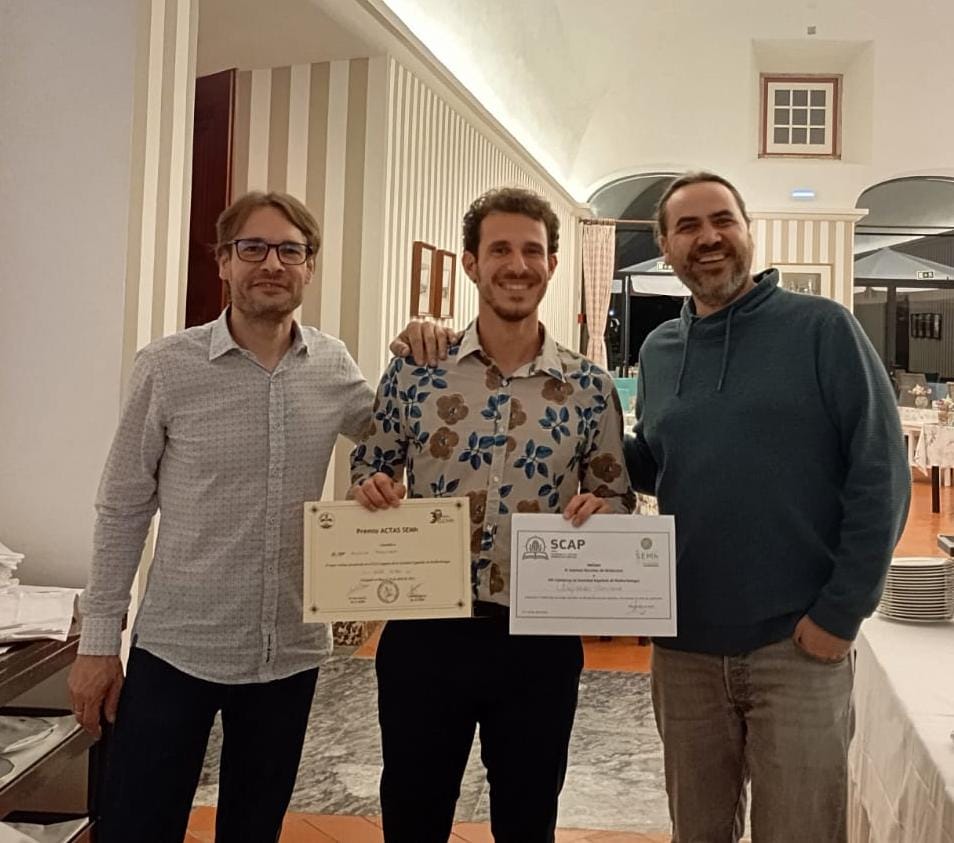Alfredo Manicardi, PhD student of the Crop Protection group of Agrotecnio and the Malherbology and Plant Ecology group of the University of Lleida has obtained two awards for his scientific communication in two congresses that were held jointly in Beja (Portugal) last week. Manicardi obtained these awards at the congresses of the Spanish Society of Malherbology (SEMh) and the Sociedade das Ciências Agrárias de Portugal (SCAP).
His work looks at the evolution of herbicide resistance in an invasive weed species, Amaranthus palmeri, which is native to the United States and is also abundant in Mediterranean maize fields. The study attempts to trace the evolution that has led to the emergence and spread in Europe of resistance to herbicides – widely used throughout the world – that inhibit the enzyme acetolactate synthase.
Amaranthus palmeri is an invasive species that seriously endangers local agricultural production. Manicardi’s study, which takes into account the distribution of the plant’s populations in Spain and Italy, provides precise information on how to manage it and curb its spread in the countryside. This work is part of his doctoral thesis, co-directed by doctors Joel Torra (Agrotecnio-Universitat de Lleida) and Jorge Lozano (Institute of Molecular and Cellular Biology of Plants – Universidad Politécnica de Valencia). The results of the research have been published in the journal Pest Management Science.

